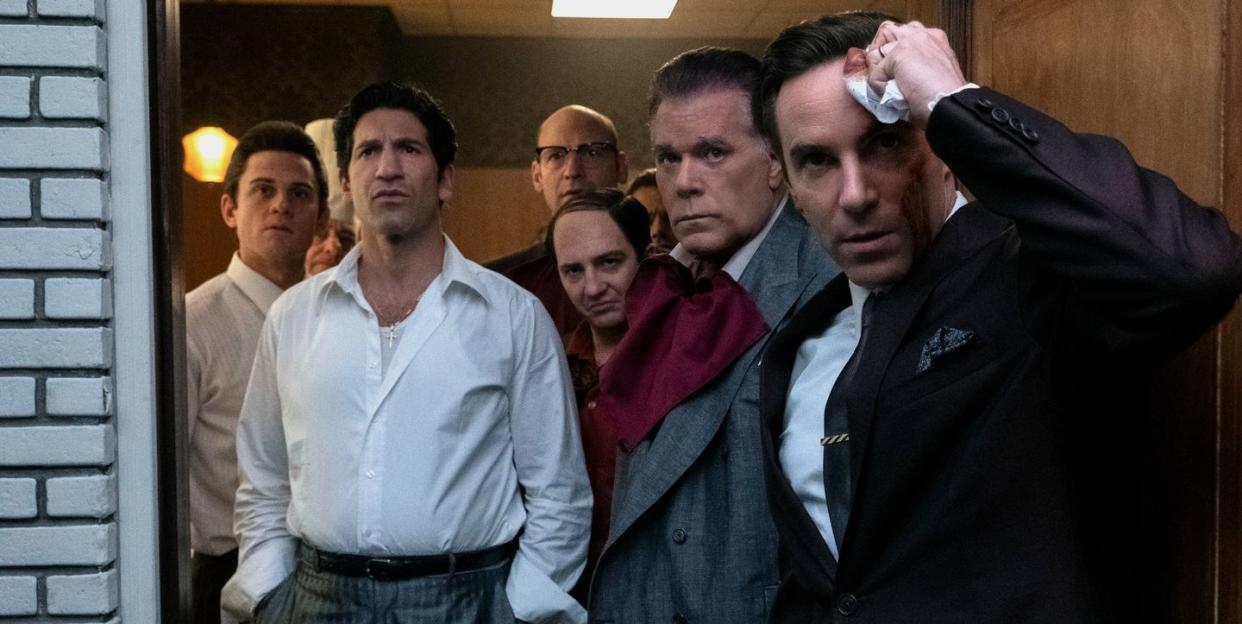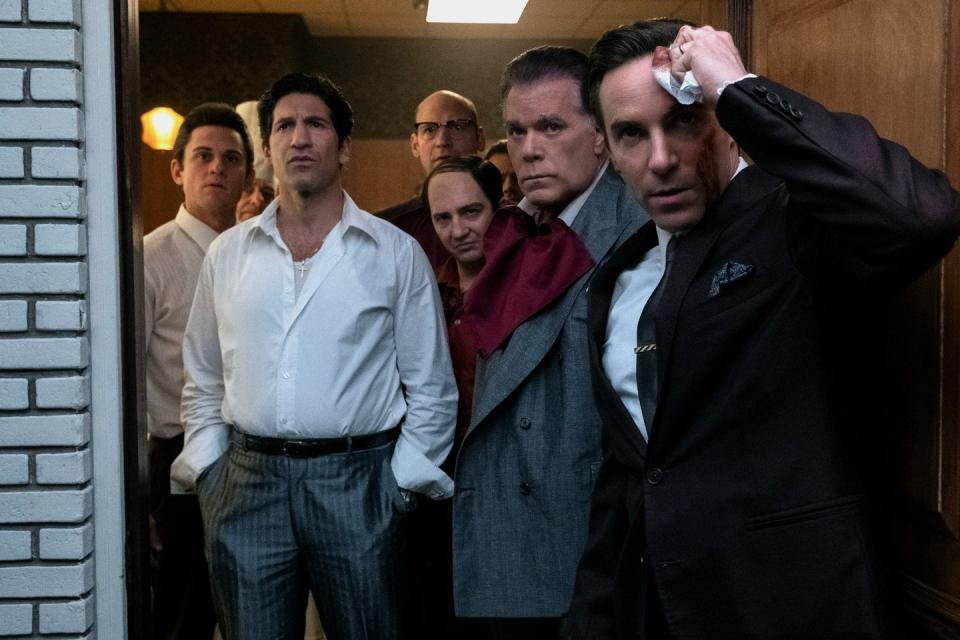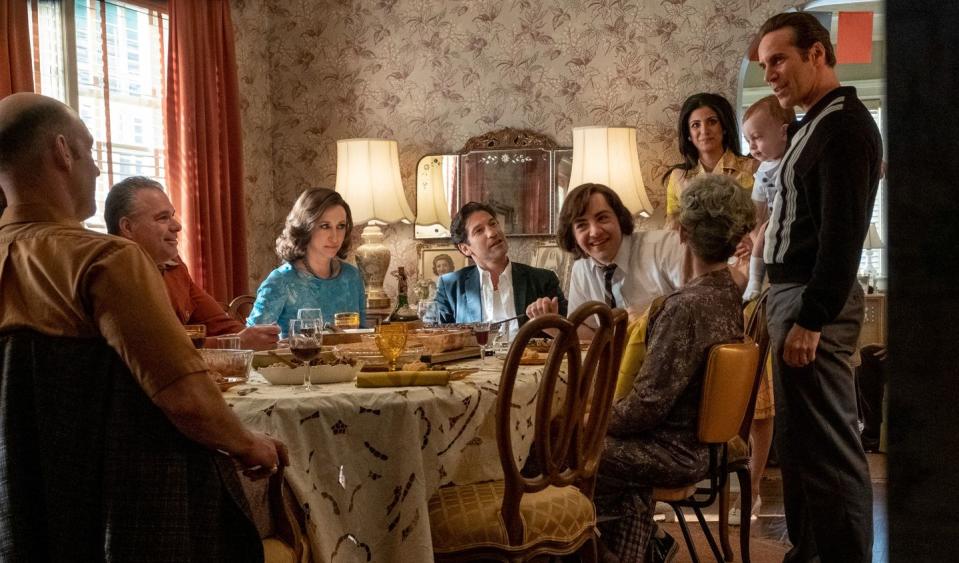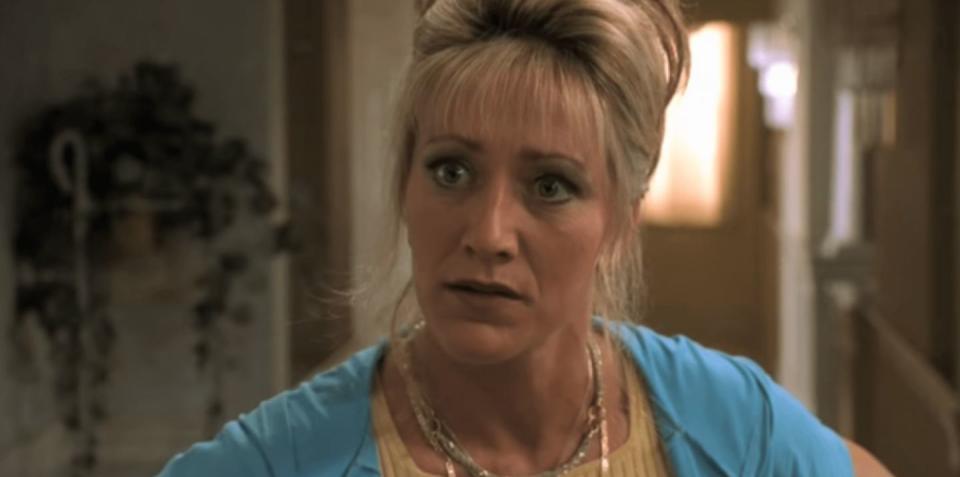How The Many Saints of Newark connects to The Sopranos

- Oops!Something went wrong.Please try again later.
- Oops!Something went wrong.Please try again later.
The Many Saints of Newark spoilers follow.
The Sopranos fans have finally been taken back to the world of the groundbreaking show in prequel movie The Many Saints of Newark, and it wouldn't be an understatement to say the movie set itself quite the challenge.
Not only did it have to continue the legacy of the show alongside making its own mark, it also had to ensure that newbies could enjoy the movie and give enough nods to the show so that fans would delight in how it expanded upon the Sopranos world.
Setting the story roughly 30 years before the show's pilot was a smart move. Acting as a prequel to the series, you don't need to have seen a single Sopranos episode to understand The Many Saints of Newark, but if you have there are plenty of connections, references and Easter eggs to pore over.
The thematic comparisons between the two are very clear as much of The Sopranos addresses the fragility of the mob, looking at its decline in power and status.
This is something many members of the DiMeo crime family recognise, with Tony famously stating in the pilot: "I'm getting the feeling that I came in at the end. The best is over." Others, like Tony, feel that the glory days are over and reminisce nostalgically on a past they adore but were not a part of.

What The Many Saints of Newark cleverly does is take us to this past, demonstrating that it was far from a golden age for the mafia. By telling the story of Dickie Moltisanti (Alessandro Nivola), father of The Sopranos' Christopher, we see that the family's hold on the city is brittle, and becomes increasingly so when the Newark riots cause growing resentment in their associate Harold McBrayer (Leslie Odom Jr).
However, even without the civil unrest and gang war, the DiMeo's control on Newark is crumbling thanks to the egotism and machismo of its own members, who are more than eager to stab each other in the back.
In The Many Saints of Newark, this is most highlighted in the concluding scenes, where it is revealed Junior (Corey Stoll) was the one who ordered Dickie's murder, angry at the fact Dickie laughed at him falling over.
Throughout the movie, Junior is continually slighted by his own family. His growing bitterness towards them is evident, and finally becomes explosive at the end. He wants to be seen as a powerful man but instead is a laughing stock, a reputation that continues in the show.
His actions in killing Dickie set up neatly what he goes on to do in The Sopranos, ordering a hit on Tony believing his nephew to be a threat to his position as boss. Junior is willing to betray anyone if he feels his reputation as a powerful man is threatened, and he is not the only character to do so.

Another scene nods and winks at the audience as a baby Christopher cries while being near a teenage Tony (Michael Gandolfini). A family member says, "Some babies when they come into the world know all kinds of things from the other side", referring to the episode 'Kennedy And Heidi' which saw Tony murder Christopher.
This is one very unhappy crime family.
Part of this fragility is the fact that many of these mobsters, in both the show and the movie, believe themselves to be good people. Like most sociopaths, both Tony and Dickie see themselves as good guys or at least believe they are trying their best to be better men, often comparing themselves to the fathers they detest – in The Many Saints of Newark we even see Dickie murder his dad Hollywood Dick (Ray Liotta).
Although Tony is primarily driven to see Dr Melfi (Lorraine Bracco) as a result of his anxiety attacks, we also get the sense that he enters therapy to try and heal so he can become a better person. Similarly in the movie, we see Dickie start regularly visiting his estranged uncle (also played by Liotta) in prison, claiming that he wants to do a "good deed" after killing his father.

The pair's shared hatred for their fathers is not the only way their Oedipal tendencies are explored. In the show, Melfi attempts to analyse Tony's Oedipus complex as he is attracted to women similar to his mother, and we also see in one of his dreams Melfi, whom Tony is attracted to, morph into Livia.
His closeness to his mother is referred to in The Many Saints of Newark when a young Tony tells a teacher one of his most treasured memories is Livia "snuggling" with him. Dickie's Oedipus complex is more obvious given that he starts a relationship with his own step-mother (Michela De Rossi), with his father's abuse of her leading to Dickie repeatedly shoving his old man's head into the car's steering wheel until his skull is crushed.
In addition to the thematic comparisons, there are plenty of Easter eggs and extended cameos that link the movie to the series, something audiences will have plenty of fun spotting, recreating that infamous Leonardo DiCaprio meme.
As well as getting to see younger versions of many of our favourite Sopranos characters, such as Tony, Junior, Livia (Vera Farmiga) and Johnny Boy (Jon Bernthal), we even get a very brief glimpse of a young Carmela.
Talking of Carmela, it was recently revealed that Edie Falco shot a scene reprising her role from the hit series, but it ultimately landed on the cutting room floor. The only Sopranos cast member who does appear in the movie is Michael Imperioli, and it's his voice only, with Christopher narrating his dad's story from beyond the grave.

With the movie depicting Tony's formative years, we also revisit scenes from his childhood which are only briefly glimpsed at or referred to in the show. For example, we once again see Tony witness the arrest of his father at a children's carnival, but this time more of the aftermath is shown as Livia berates him, causing her son to run off.
The memory Janice recalls in the series of the time their father shot through Livia's beehive hair-do is also depicted in The Many Saints of Newark. While in the show Janice laughs at the memory, in the movie the sheer horror of that event is emphasised.
By looking at moments like this from Tony's childhood, as well as the stories of those he idolised such as Dickie, The Many Saints of Newark ultimately does answer the question 'who made Tony Soprano' and why is he who he is – something Tony himself is grappling to understand in The Sopranos with his frequent visits to Dr Melfi.
As the movie's closing shots and narration reflects on how the death of Dickie will lead to Tony's rise, The Many Saints of Newark delivers one last reference as it fades to the credits as The Sopranos' iconic theme song 'Woke Up This Morning' kicks in.
It had to be done, didn't it?
The Many Saints of Newark is out now in UK cinemas and will be released in US cinemas and on HBO Max in the US on October 1.
You Might Also Like

